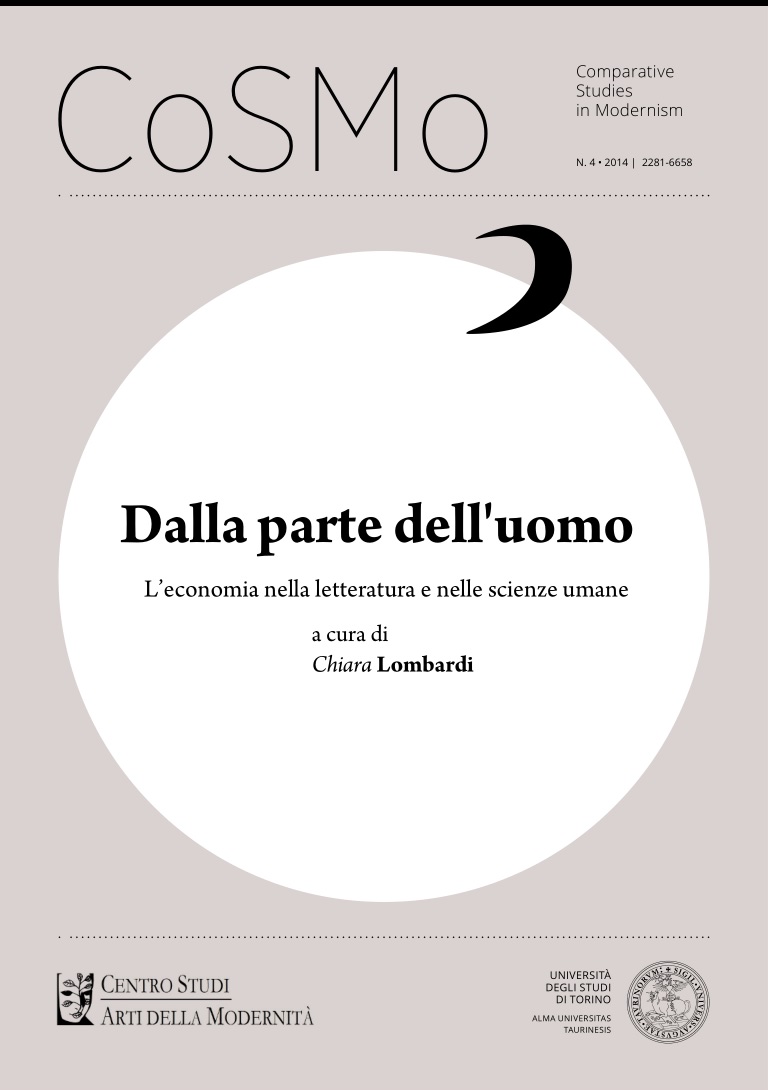“Economy Teaches How to Choose”: Marriage and Betrayal as Economic Metaphors from Machiavelli to Lloyd Roth and Alvin Shapley
DOI:
https://doi.org/10.13135/2281-6658/592Keywords:
Comparative Literature, Machiavelli (Mandragola), Economics, Theory of GamesAbstract
The essay aims at analyzing the relationships between literature and economy in Machiavelli’s Mandragola, focusing not simply on the thematic level, but specifically on the concepts of choice and desire as conceived by the logic of the first capitalism. Both these concepts will later support the economic thought of Paretus and the modern theory of games as well, this latter applying to various fields such as psychology, sociology, ethics etc. Starting from these premises, this contribution will try to demonstrate how Machiavelli’s Mandragola plotted the notions of choice and desire as the principal strengths of modern economic rationality. The narrative expedient of the mandragola, indeed, represents the winning means of reaching what we may call, though anachronistically, a Nash equilibrium: every character, without exception, obtains his pay-off. This equilibrium concerns marriage, but at the same time is achieved through marriage’s negation (that is through the betrayal), thus implying the representation of dynamics and power relations which complicate, discuss and reallocate the initial conditions of stability.Downloads
Downloads
Published
Issue
Section
License
Authors keep the copyrights for their work and give the journal the work’s first publication copyright, which is at the same time licensed under a Creative Commons License – Attribution, which in turn allows other parties to share the work with an acknowledgement of the work's authorship and initial publication in this journal.
Content Licence

You are free to copy, distribute and transmit the work, and to adapt the work. You must attribute the work in the manner specified by the author or licensor (but not in any way that suggests that they endorse you or your use of the work).
Metadata licence

CoSMo published articles metadata are dedicated to the public domain by waiving all publisher's rights to the work worldwide under copyright law, including all related and neighboring rights, to the extent allowed by law.
You can copy, modify, distribute and perform the work, even for commercial purposes, all without asking permission.





